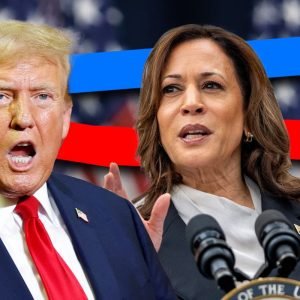
Unclaimed Myki credit sits at $115m
Josh Taylor
The Victorian government is holding $115m in unclaimed Myki funds in a trust, Guardian Australia can reveal.
Last month, the NSW government announced it was holding $143m in unused Opal transport card funds from nearly 18m cards that hadn’t been tapped on for over a year, encouraging people to check cards and transfer the money back to their bank account.
Sixty per cent of transport users in New South Wales have switched to using credit cards, bank cards or their phones for tapping on.
In Victoria, however, a similar type system isn’t expected to roll out until next year, and Myki cards expire. When they expire the leftover funds go into a trust held by the government until they’re claimed.
As of the end of June, that fund sits at $115m. The government extended the expiry of Myki cards by two years in October last year, and indicated the improvements under way will reduce the risk of unused funds sitting on cards in the future.
Key events
It’s up to Labor to ‘make the case for fairness’: SA premier
The South Australian premier, Peter Malinauskas, with a somewhat gravelly voice, is now giving his speech making the case for the Albanese government. He’s made a reference to the Light on the Hill, and has pitched the Labor government as the stewards of fairness in Australia.
It’s up to Labor to “make the case for fairness in this country” he says – but he warns of a fierce fight ahead.
The Tories are going to come at us. And they’re going to come at us hard. It’s the one thing they might actually be good at.
Dutton’s agenda is ‘all wrong for Australia’: PM
Albanese:
Peter Dutton has spent every day hoping the worst for this country. He thinks Australia can’t compete for good jobs, that workers don’t deserve their wages, that you don’t need help with your power bills, he thinks medicine should be more expensive and Medicare less generous. He is wrong about our country and his agenda is all wrong for Australia.
Because the challenges facing us won’t be solved by cutting. The opportunities ahead of us won’t be seized by wrecking. This is a time for building. Building better education for all, building more homes for Australians, building the cleaner and cheaper energy to cut our emissions and power our homes and industries. Building an economy defined by good jobs, fair wages and equality for women. Building an economy connected to the growth and opportunities of Asia where we make things here in Australia. Building a society defined and uplifted by better aged care, a more secure NDIS and stronger Medicare for everyone. Building a nation that is secure at home, strong in our region and respected on the world stage. Building and Australia where we care for our environment and keep it safe for our grandchildren. Building in Australia where we embrace every culture, every faith and every tradition that enriches our nation, beginning with the oldest continuous culture on earth.
My fellow Australians, next year, with respect for our people, optimism for the future and a determination to shape it. A Labor government will be asking for the opportunity to continue to serve the greatest country in the world and the chance to make it even greater still. Building on the strong foundations we have made, building together, building to last, our Labor government building Australia’s future.
And with that, Albanese leaves to great applause.
PM hints at further education pledges
Albanese has signalled that his government has unfinished business saying these policies are the “next big step” but “won’t be the last”.
My colleague Paul Karp suggests that this means the government may look at the cost of degrees, will seek to undo parts of the Coalition’s “job ready graduates” program, or return to a demand-driven university system.
Meanwhile, the PM is building to a crescendo saying the next election will present a clear choice:
A Labor government driving to be the change our nation needs and creating the opportunities that our people deserve. Or a return to the denial, delay and vision of the past Liberal and National parties, the same people that spent nine years in government creating the problems and have spent every day in opposition trying to block the solutions.
Their cuts, waste and neglect left Australia wide open to global uncertainty and now they want to go further, they want to cut what is helping, punish people that are struggling, to claw back big tax cuts we delivered, close the Medicare urgent care clinics we opened, to stop the housing projects we started, to take away the help with power bills you deserve, to push up the price of medicines you need, to rip away the pay rises you received and the rights you have, to derail the progress we made on renewables so they can burn 100s of billions of dollars on nuclear reactors, a plan that will deliver less than 4% of the energy Australia needs, and two decades too late.
Graduates have been ‘caught out’ by rising inflation: PM
Albanese is now addressing his promise to wipe $3bn of student debt if re-elected. He says Australia’s graduates have been “caught out” by rising inflation and that this change will save a person with an average debt “around $1,200”.
Part of this was about addressing a one-off but, just as importantly, we changed the system and made it fairer and better so it could never happen again.
Albanese says it was a Labor government that created the Hecs system and “chose that name because it was about students making a contribution to the cost of their education”. He says that was changed by the Liberals to make it more like a standard loan.
This generation of students graduating from three-year degrees with debt of 30, 40, $50,000. That level of debt hangs over you. You can see it when you login to myGov or do your tax return and it affects how much you can borrow for homes and impacts decisions you make about your family and career. Because of the changes in rising costs, it comes out of your take-home pay sooner. Fixing this intergenerational unfairness will require substantial investment. It will take time.
The PM says that if his party wins re-election, his government will wipe 20% of student debt “for everyone that has one”.
This measure alone means a typical university graduate will see their debt cut by $5,500.
The government will also raise the repayment threshold from $54k to $67k, lower the rate of repayment and “index both to keep them fairer into the future”.
PM pledges permanent free Tafe
Australia will have access to permanent free Tafe nationwide if the Labor government is re-elected, the PM says in the first major policy announcement.
Albanese says his government will legislate to guarantee 100,000 free Tafe places each year to give “more opportunity for Australians to train and retrain in a changing and dynamic economy”.
Tafe gives our country and our people all of this and as long as there is a labour government, free Tafe is here to stay.
The PM says his government will also double the number of university hubs in regional communities.
Education at heart of Labor’s vision for Australia: PM
The PM is using the opportunity to define the legacy of his first-term government and to lay out his vision for what Australia as “a country where you know if you put in and work hard, it adds up to something” and “no one held back and no one left behind”.
Albanese says education is at the heart of this vision, as it will help ensure the country has the “tradies and architects to build and plan the homes we need, the engineers and electricians that deliver the clean energy to take us to net zero, the scientists discover new cures and driving new breakthroughs”.
He says that his government has done this by putting Tafe back of its policy planning.
No Labor government would ever call Tafe a waste.
‘Our nation can lead the world on clean energy’: PM
Albanese is seeking to cast the challenges that Australia has faced as opportunity:
I know workers, families and small businesses have all done it hard. But while there are still challenges to meet, still problems to solve, still people under pressure that need our help, when we look at the economy today, we can see new reasons for optimism, new proof that the worst is behind us.
Together we have faced a global storm and have navigated it in the Australian way, the Labor way, not by cutting services Australians count on, not by denying families the help they need in hard times, but by looking after people and look to the future. For all the challenges we have faced, this remains a time of profound opportunity for Australia.
He then pivots into a discussion about South Australia’s embrace of renewable energy as an example of how “our nation can lead the world on clean energy”.
We can power a new generation of manufacturing. We can make things here in Australia. We can build Australia’s future stronger and fairer than ever before. And we can make sure the people who have carried the weight of today’s challenges share the reward of tomorrow’s opportunities. Reform that holds no one back, progress that leaves no one behind. That is what drives and defines our government.
PM outlines new reforms since Labor came to office
Albanese is running through the list of reforms and interventions his government has introduced since coming to office. According to the PM, this includes:
Making medicine cheaper;
Opening 75 new Medicare urgent care clinics;
Boosting bulk billing;
“Rebuilding the health system so that your Medicare card that matters, not the balance on your credit card”;
Energy bill relief for households and business
A crackdown on dodgy pricing and unfair practices;
Industrial relations reforms;
Boosting wages in aged care, childcare and low-paid industries;
Expanding paid parental leave to six months and adding superannuation to it;
Tax cuts “for every single Australian taxpayer”.
Albanese also points to falling inflation, a narrowing gender pay gap, a stabilised relationship with China and “back-to-back budget surpluses for the first time in nearly two decades.’
When you look at all of these facts, this is an economic record we are so proud of.
PM outlines ‘serious and urgent challenges’ government has faced
With Marles having set the scene, the prime minister, Anthony Albanese, is called to the stage with applause.
Albanese opens by using the moment to set the scene for the challenges faced by his newly elected government.
We came to office knowing this is a time of serious and urgent challenges for the global economic uncertainty. A worldwide surge in inflation and energy prices. And Australia’s relationships with our own region under strain.
Under home, aged care was in crisis. Medicare under threat. Bulk billing in freefall. Real wages going backwards not by accident but as a deliberate design feature of the economic architecture. Our energy grid had been run down by years of ideology and neglect. And skills and manufacturing hollowed out to the point that in the midst of a global pandemic we nearly ran out of masks and could not make any more here. These are the challenges we have had to face. This is the mess we have worked to clean up.
‘Can we afford the cost of Peter Dutton?’: Marles
The defence minister, Richard Marles, is speaking now at a campaign event in Adelaide as federal Labor gears up for the next election.
Marles is attempting to flip the script on the Coalition leader, Peter Dutton, presenting his as reckless, arrange and selfish, and committed to austerity saying he “is prepared to send the country backwards if it will propel him forwards”.
Marles has attacked Dutton’s record on healthcare from his time when he served as Tony Abbott’s health minister, joking that “he was so bad as health minister that even Tony Abbott had to sack him”.
If we give Medicare back to Dutton it will be gone for ever.
He has also landed attacks on the Coalition’s nuclear pitch, pointing out that Dutton has so far refused to answer basic questions and provide basic numbers.
Even if you ignore all of that, you cannot ignore that Peter Dutton’s reckless and risky plan to build nuclear power plants will send energy bills through the roof.
The theme, which will probably be developed going into the next federal election, appears to be a simple one:
Can we afford the cost of Peter Dutton?






